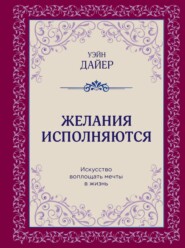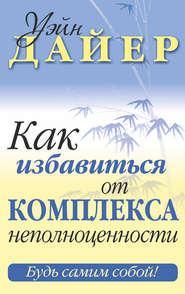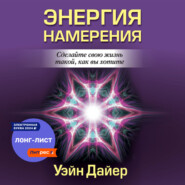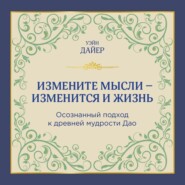По всем вопросам обращайтесь на: info@litportal.ru
(©) 2003-2025.
✖
There Is a Spiritual Solution to Every Problem
Автор
Год написания книги
2018
Настройки чтения
Размер шрифта
Высота строк
Поля
As I mentioned in chapter one (#udf1362d2-6210-5009-bab3-b15b4cf444b0), in preparation for writing this book I became blissfully involved in the teachings of a saint called Patanjali, who reportedly lived here on earth several thousand years ago. No source that I have reviewed has been able to precisely identify who Patanjali was, if he was indeed more than one person, and even when he lived. Like Shakespeare, or Jesus, and many other major figures, Patanjali’s ideas and teachings have retained their influence, in spite of the lack of details we have about his existence.
In the previous chapter I refer to his translated works How to Know God: The Yoga Aphorisms of Patanjali. There are very few books which have caused me to feel the sense of excited anticipation I felt while reading The Yoga Aphorisms. Patanjali teaches that we are capable of reaching a state of awareness in which we can perform miracles. He explains that we are transcendent beings to begin with and counsels us to be unafraid of transcending the limitations imposed upon us by the material world.
Patanjali’s words caused me to truly think of myself as capable of living at a much higher level than I had ever considered before. He presents ideas that are life changing. I felt urged to go beyond traditional ideas that acted as obstacles to my union with God. I urge you to suspend disbelief as you read this chapter. I am fully aware that some of this material may clash dramatically with your inherited religious teachings.
The title of this book makes a powerful claim: that there is a spiritual solution to every problem you will ever face. In order to apply this idea you need to be aware of these so-called “radical” ideas, because they can open you to your ability to implement spiritual solutions to your problems. It may help if you keep in mind that there is a distinction between spiritual development and formal religious teachings.
Patanjali offered hundreds of specific suggestions and practices to reach the oneness or union with God, which he called yoga. Some of Patanjali’s aphorisms will undoubtedly sound far too removed from our twenty-first-century life to apply to the problems we have in today’s world. I have selected five of the aphorisms that helped me recognize that spiritual solutions are only a thought or two away. I introduce each of them along with my commentary on their value to spiritual problem solving in the world we presently live in.
In our materially oriented world we are often confronted with problems that seem insoluble. A shift in thinking is required in order to discover that we have something at our disposal that we can put into practice. We need to see ourselves as containing a force that can be called upon for spiritual solutions. We don’t have to consult an expert in theology, or thumb through ancient manuscripts to find our answers. We need to realize that spiritual solutions are readily accessible.
A while back during an intermission of a half-day seminar that I was conducting, someone left this note on the table onstage.
Question to God: “Why did you let all of those people in that Denver school die?”
Response from God: “I’m not allowed in school anymore.”
In the twenty-first century many Americans seem to equate God with religion and religious training which they insist be separated from teaching and learning in our schools. But nowhere in our Constitution is it specified that we must separate God and state. It says quite clearly that a separation of church and state shall be the way of our land. To separate God and state we would have to recall every coin and piece of currency issued by the state and strike out “In God We Trust.” We would have to amend our Pledge of Allegiance and all references to God in our government documents! Trying to legislate God out of our daily lives contributes to the growing spiritual deficit that our world is experiencing.
The ideas that Patanjali wrote about several thousand years ago are of immense value today. These ideas are not part and parcel of a religion or a church. They are a prescription for coming into union (yoga) with God and consequently regaining all the power and majesty of one’s source.
Enough of my disclaimers and warnings. Here are five aphorisms from approximately twenty centuries ago that can help you gain access to your spiritual answers. I have arranged these five major themes in a way that I found useful for myself and I trust will be helpful to you.
THE FIRST APHORISM
The central act of ignorance is false identification.
Patanjali describes ignorance as a basic misunderstanding of one’s real nature. According to this ancient master when we identify ourselves as our name or title, our body, our possessions, achievements, or reputation, we are denying our true identity. This he maintains is ignorance.
This act of ignorance forces us to misread nature and consequently to dwell on the outwardness of things. When the world is viewed as a collection of separate things and beings, awareness of wholeness is impossible. This ancient master made it quite clear that when we deny God within us, we deny God everywhere. Finding a spiritual solution to every problem begins with a commitment to end this kind of ignorance.
In order to eliminate ignorance as defined by Patanjali, you do not have to go back to school. Ignorance is not the absence of knowledge. He is not saying you are ignorant if you can’t spell, or solve quadratic equations, or list the capitals of countries from memory. Each person has a vast storehouse of facts and knowledge at his disposal. For some it involves reading blueprints, and for others it is repairing bicycles. For some it is preparing a sumptuous meal, and for others it is driving an eighteen-wheeler across the country. Who is to say that any one set of facts and skills is any more important than any other?
If one set of skills allows you to make more money and that is important to you, then by all means learn and apply those skills to your money-making efforts. But the person who elects a different set of facts and skills, which produce less income, is not ignorant, even though our culture often tends to equate low income with ignorance.
What we are exploring here is ignorance defined as falsely identifying oneself as only of the material ego-based world.
To eliminate ignorance from your life using this definition, you will need to reprioritize your basic definition of both yourself and God. For yourself, try to let go of the false identification of God with the five senses and the intellect. Replace that false identification with imagining yourself eternally connected to a divine source. With this new identification comes an inner resolve to reorient yourself when faced with a problem. Rather than asking an external God to solve your problem for you, identify yourself as a part of the beloved divine creation that you are. Dedicate your actions to God and you will gradually see the error of false identification disappear.
For example, if you want to stop a compulsive habit of overeating, begin by no longer identifying yourself as a body full of cravings (ignorance). Instead imagine yourself as pure eternal peace and joy always unified with God. Ignorance keeps you from genuinely experiencing pleasure or fulfillment via the senses because you clutch at what appears to provide it rather than seek purity or true happiness. A false identification will always betray you. The senses will keep tempting you with objects of desire.
Unlearn the false identification of your thoughts with your ego-senses and instead see yourself as a part of the infinite. As you do, you will still act on your thoughts but you will be acting as a divine perfectly balanced eternal being. I love the idea of eternal soul presented in this excerpt from the Bhagavad-Gita:
The illumined soul …
Thinks always: “I am doing nothing.”
No matter what he sees,
hears, touches, smells, eats …
This he knows always:
“I am not seeing, I am not hearing:
It is the senses that see and hear
and touch the things of the senses.”
To become an illumined soul we must not conceptualize ourselves as our senses and all that they lust after. That is ignorance. We are not the objects of experience, but the silent observer within the experience itself. Seeing ourselves in this way provides us with a new tool for problem solving. Try it the next time you feel the impulse to overeat or consume a toxic substance or even to spend time in painful grief over a loss.
A dramatic example of this presented itself in the following letter and poem I received from Mary Lou Van Atta of Newark, Ohio. She is speaking directly to this idea of false identification as she writes of her ordeal and how she ultimately found a spiritual solution by remembering who she is, rather than who she had falsely believed she was.
Dear Dr. Dyer,
My son was murdered in a robbery attempt two years ago. Frankly, I thought I would never recover from my grief and loss. Amid all the clouds in my life and mind, I was somehow led, once more, to your books and tapes. I had read and listened to many in previous years and while I had enjoyed them, I was too busy to truly listen. Upon going over them again, I realized one underlying truth in all. We are spirit in body—not a body with a spirit.
I am once more a happy, healthy woman with a full steam ahead system. I will always feel my loss of Ross, but I know it is not the end of the story. I can wait. It’s O.K.
I have enclosed a small poem that I hope you will enjoy. I wrote it but you taught it.
Again, thank you.
Sincerely, Mary Lou Van Atta
Indeed, as Patanjali reminds us, we are spirit in body. Believing otherwise is ignorance through false identification. In that state of ignorance we become solutionless in form. When we experience what Saint Paul called a “renewal of the mind” we are able to see ourselves as we truly are.
With Mary Lou’s permission I include the poem she wrote. It summarizes this first ancient “radical” idea. The central act of ignorance is not being ill-informed, but in falsely identifying yourself as your form.
I AM
The “I” that is me—you cannot see
You see only the form that you think is me.
This form that you see, will not always be;
but the “I” that is me—lives eternally.
The next time that you face a problem that you have been unable to resolve, try redefining yourself as Mary Lou suggests in “I Am,” and put into practice your true identification as the eternal experiencer rather than the object of that experiencer. Ask yourself these key questions from the ancient Upanishads: “At whose behest does the mind think? Who bids the body to live? Who makes the ear hear and the tongue speak?”
Your true identity is the mind of mind, the eye of the eye, and the breath of the breath. Go there and you will find the beginning of a spiritual solution to any problems you believe you have. Here is how Meher Baba described this process of overcoming one’s ignorance as we are defining the term here.
“Thus, though he begins by seeking something utterly new, he really arrives at a new understanding of something ancient. The spiritual journey does not consist in arriving at a new destination where a person gains what he did not have or becomes what he was not. It consists in the dissipation of his ignorance concerning himself and life, and the gradual growth of that understanding which begins with spiritual awakening. The finding of God is a coming to one’s own self.” Your objective in applying this ancient wisdom is to dissipate your ignorance concerning yourself and life.
THE SECOND APHORISM
The mind of the truly illumined is calm because the peace of God within all things is known, even within the appearance of misery and disease.















